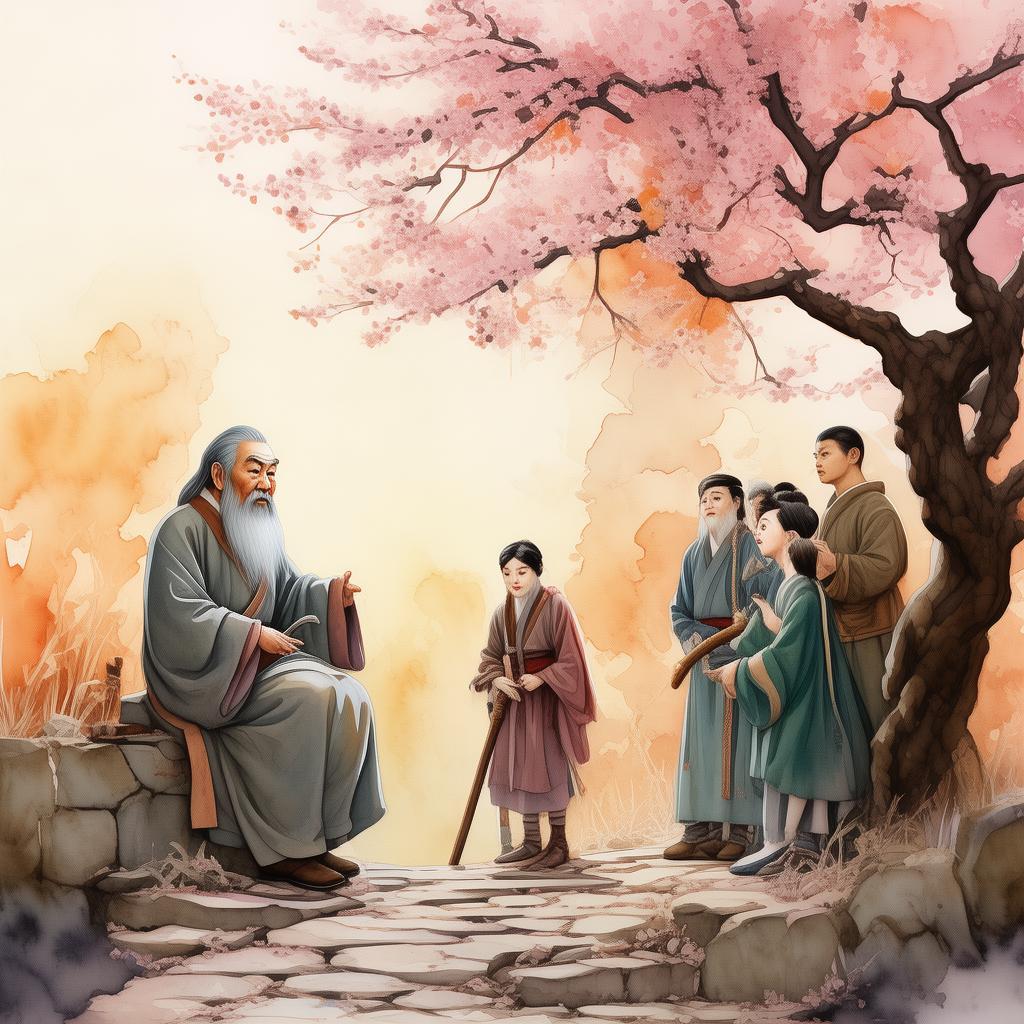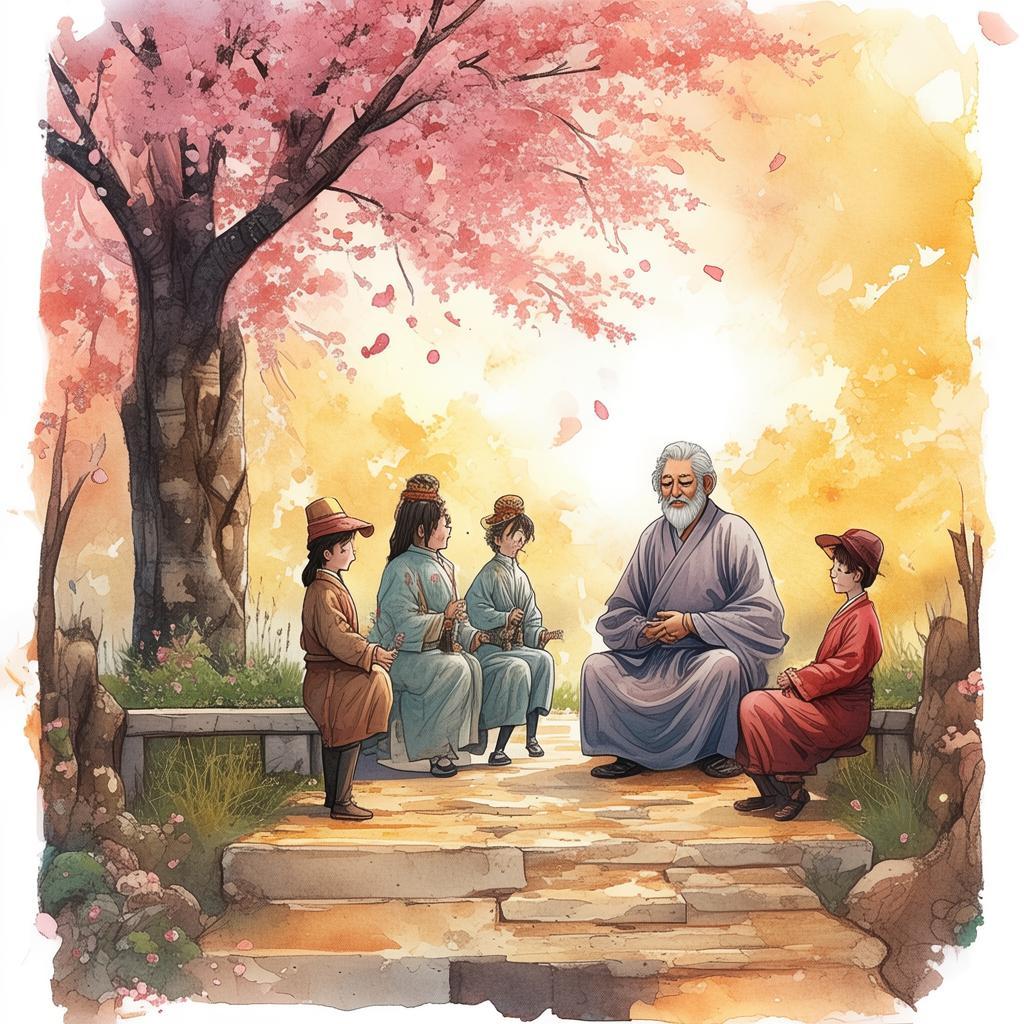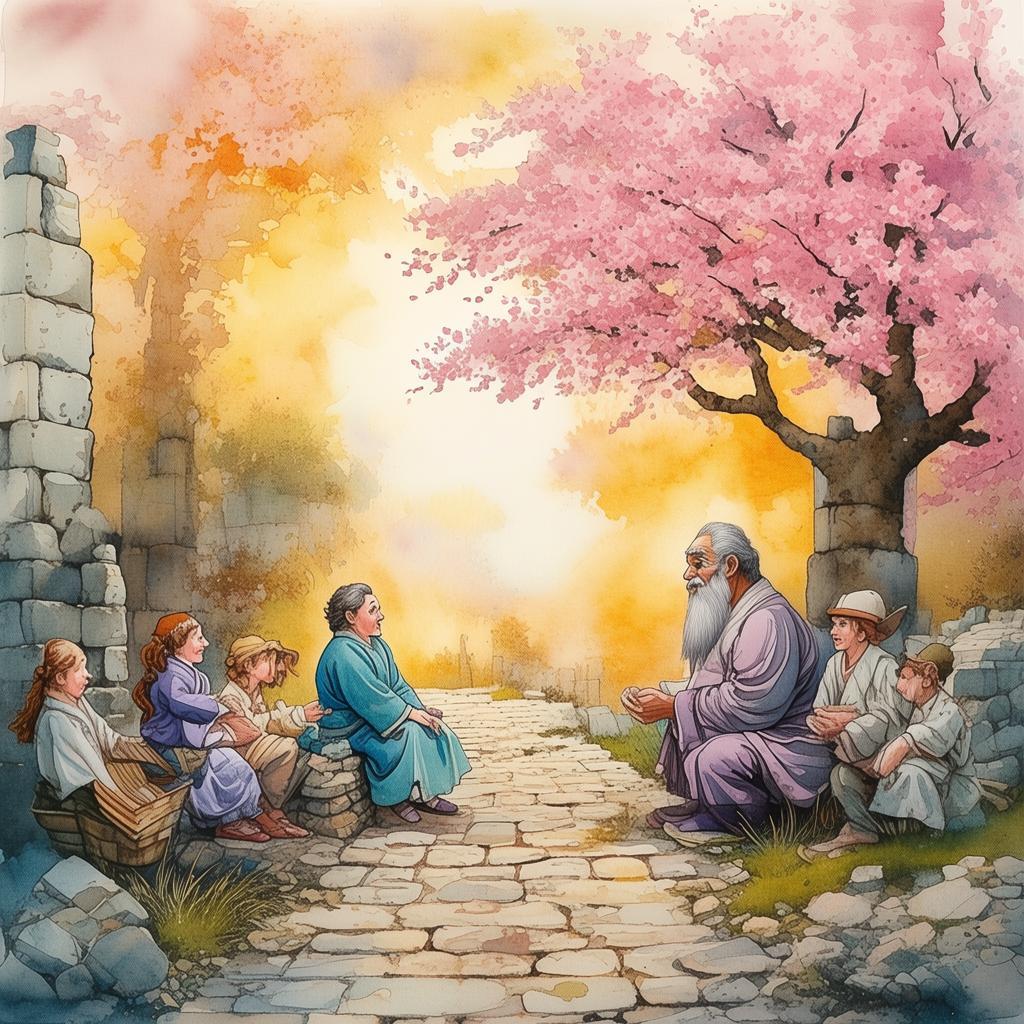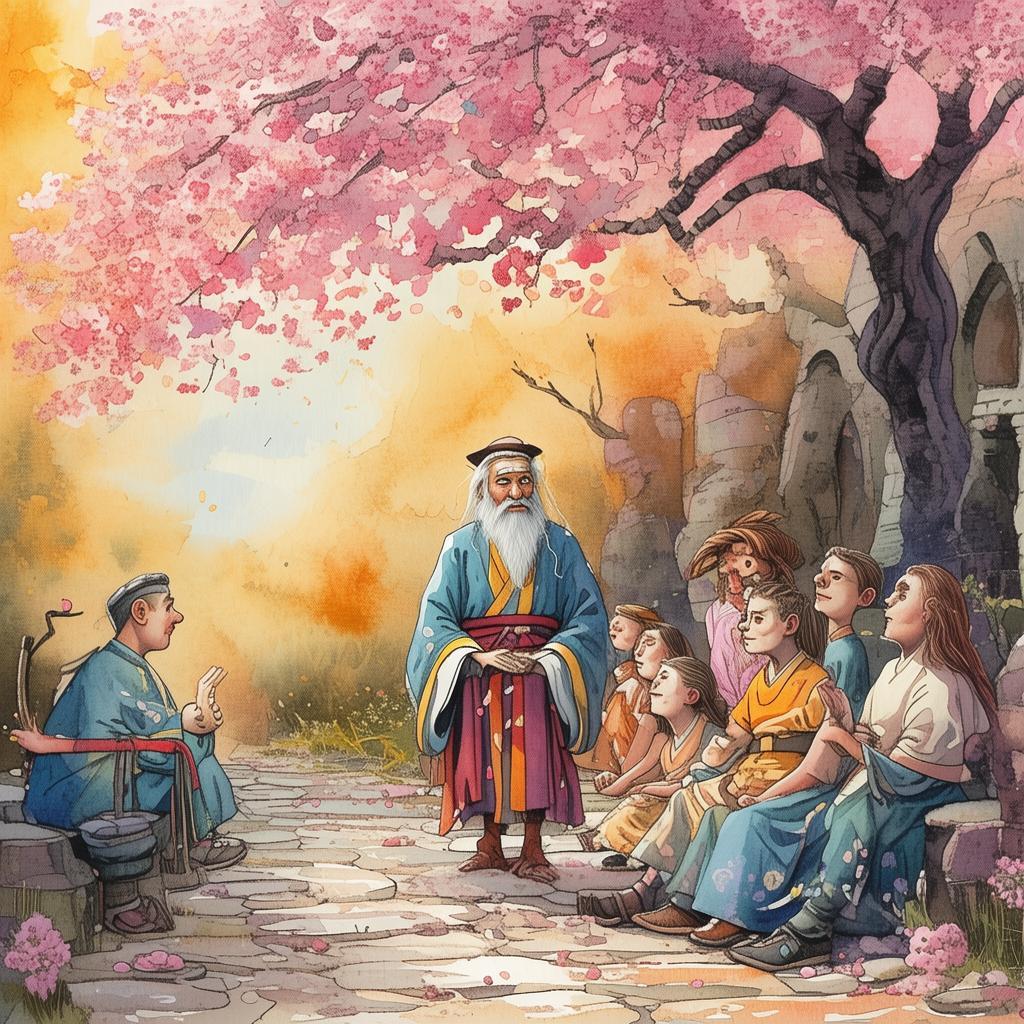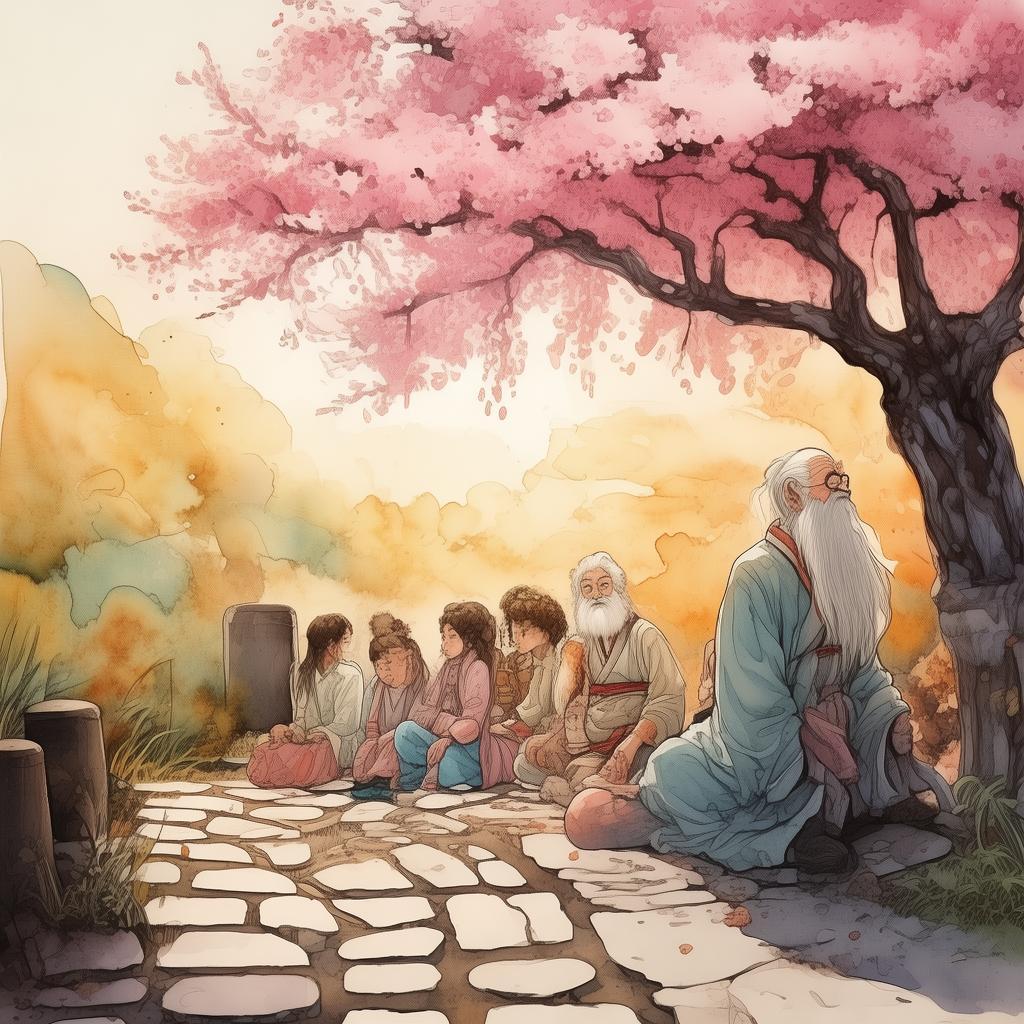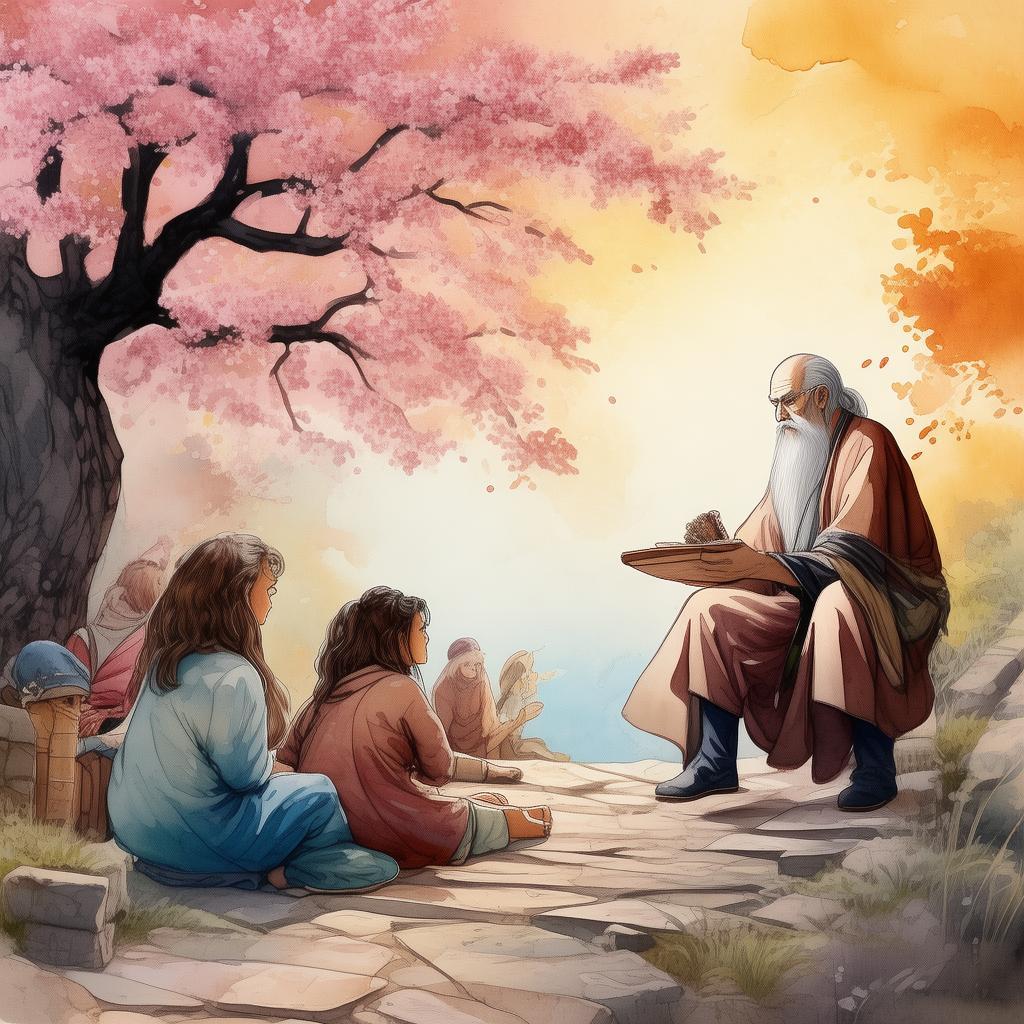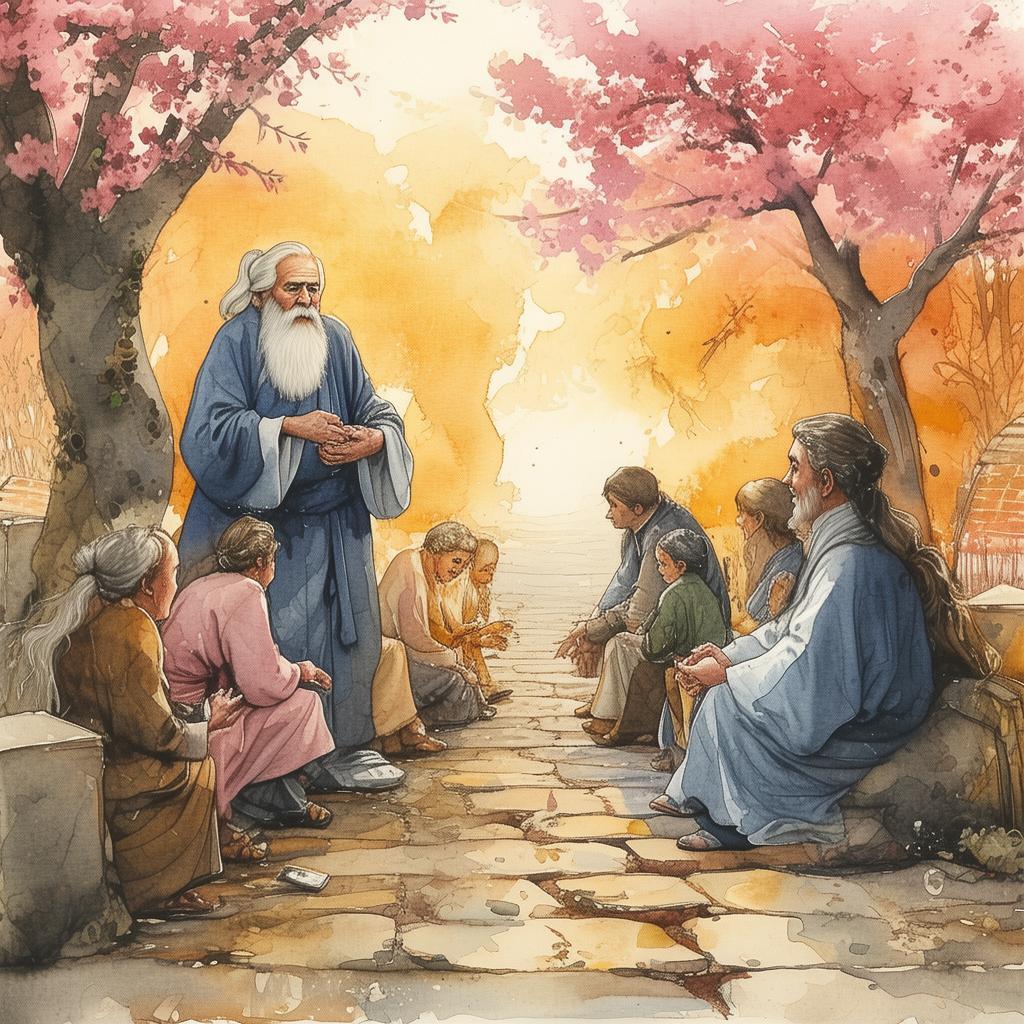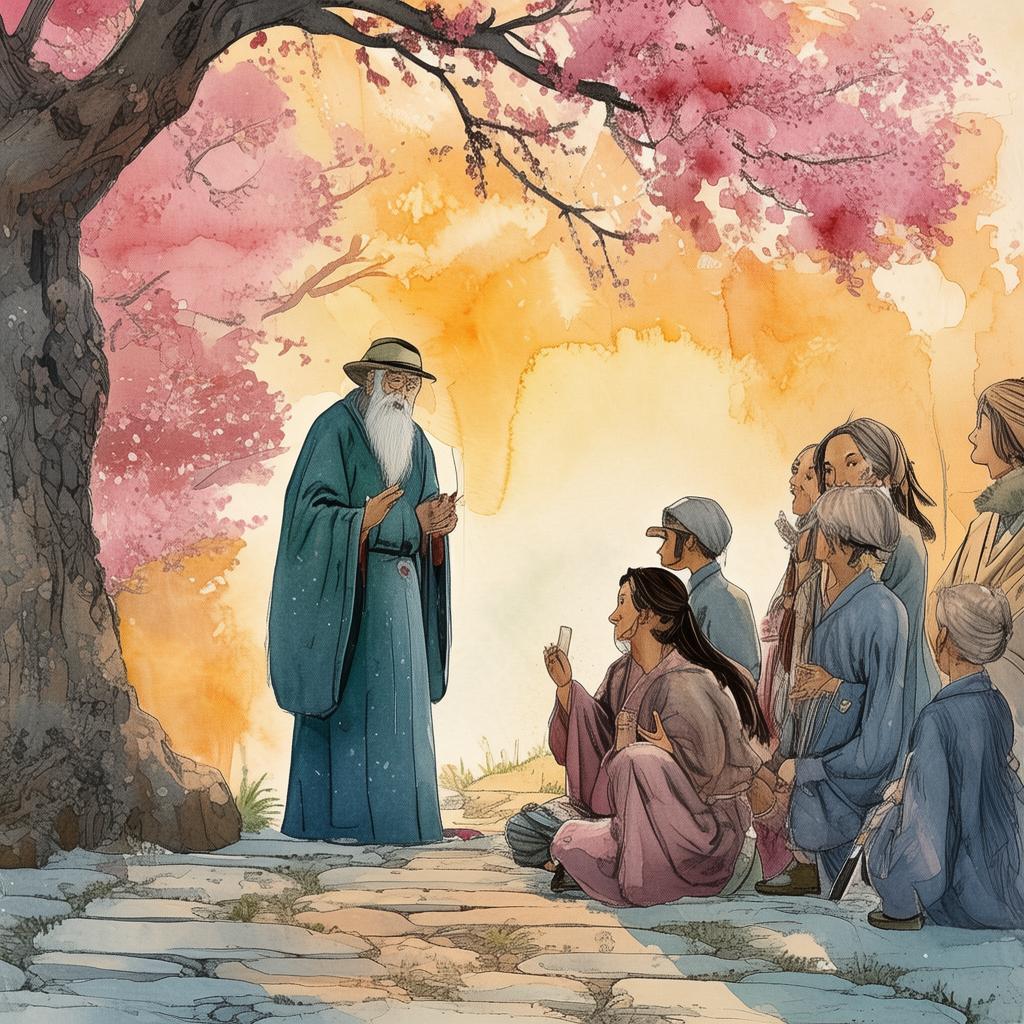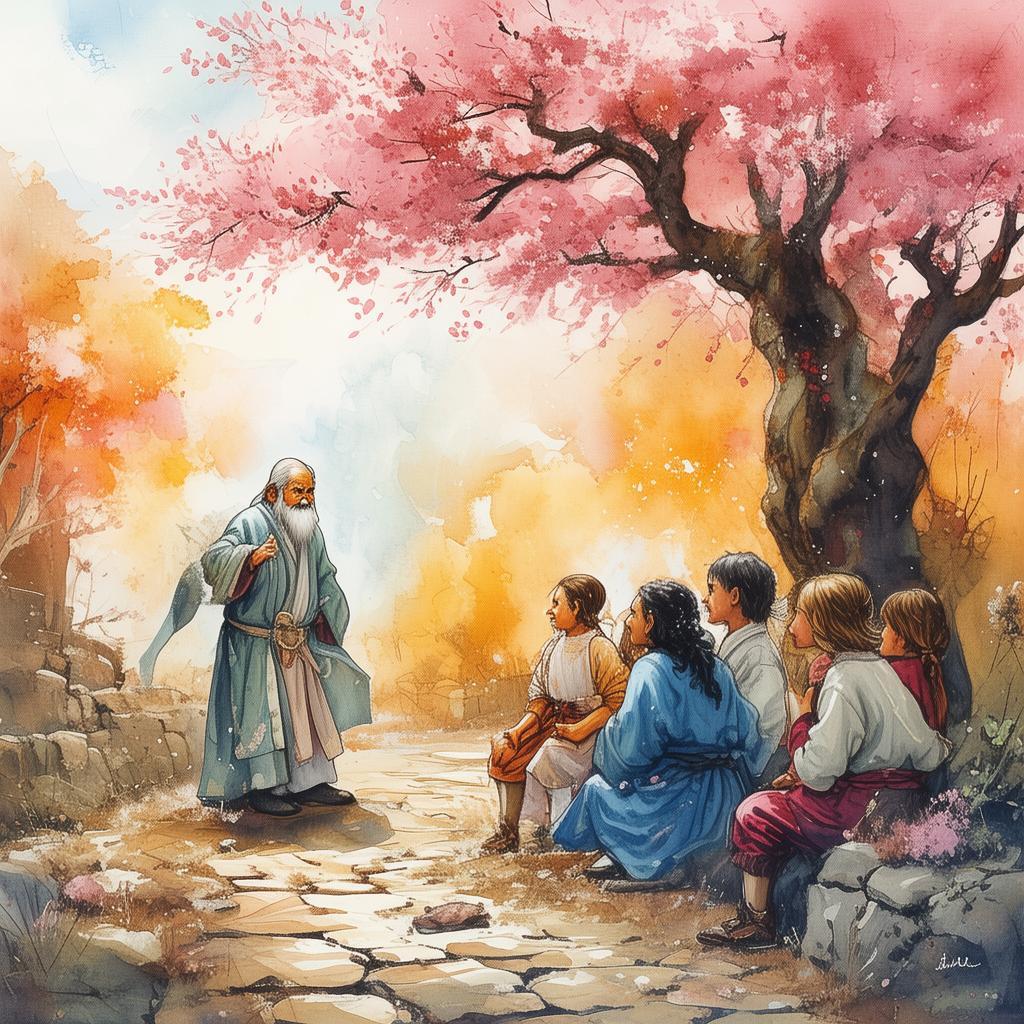The Echoes of the Unseen: A Symphony of Dreams
The city was shrouded in a dense fog, a ghostly veil that obscured the harsh realities of life for those who roamed its streets. Amidst this fog, there stood a small, modest apartment, its windows half-drawn, revealing the silhouette of a man hunched over a piano, his fingers dancing upon the keys with an intensity that belied his weary expression. His name was Zhen, a composer and pianist who had long since lost his voice in the cacophony of a world that seemed indifferent to his art.
Zhen's apartment was a sanctuary, filled with the relics of his passion—a piano, a shelf lined with sheet music that had seen better days, and a few personal mementos that whispered of a life once full of dreams. The piano, however, was his soul; it was the instrument that had once spoken to the masses, a silent symphony that resonated with the dreams and unspoken desires of the people.
In his youth, Zhen had been a sensation, his compositions an echo of the soul's longing. His music had been the bridge between the seen and the unseen, the dreams of the people that no one else could capture. But as time wore on, the applause grew silent, replaced by the hum of a world that moved too fast for melodies that spoke to the heart.
The silence was deafening. It was not the absence of sound but the absence of purpose, of a connection that had once been so powerful. Zhen's hands lay idle upon the keys, the once vibrant strings now a testament to a dream that had withered away.
One morning, as the fog began to lift, a letter arrived. It was from an old friend, a retired music critic named Li, who had once championed Zhen's work. Li's words were poignant, a reflection of the man Zhen had once been, and a challenge to rediscover his purpose.
"Dear Zhen," Li's letter began, "I have watched you from afar, a ghost in the city, lost to the world you once created. I implore you, find your voice again, for it is the voice of the people, the voice of the unseen dreams."
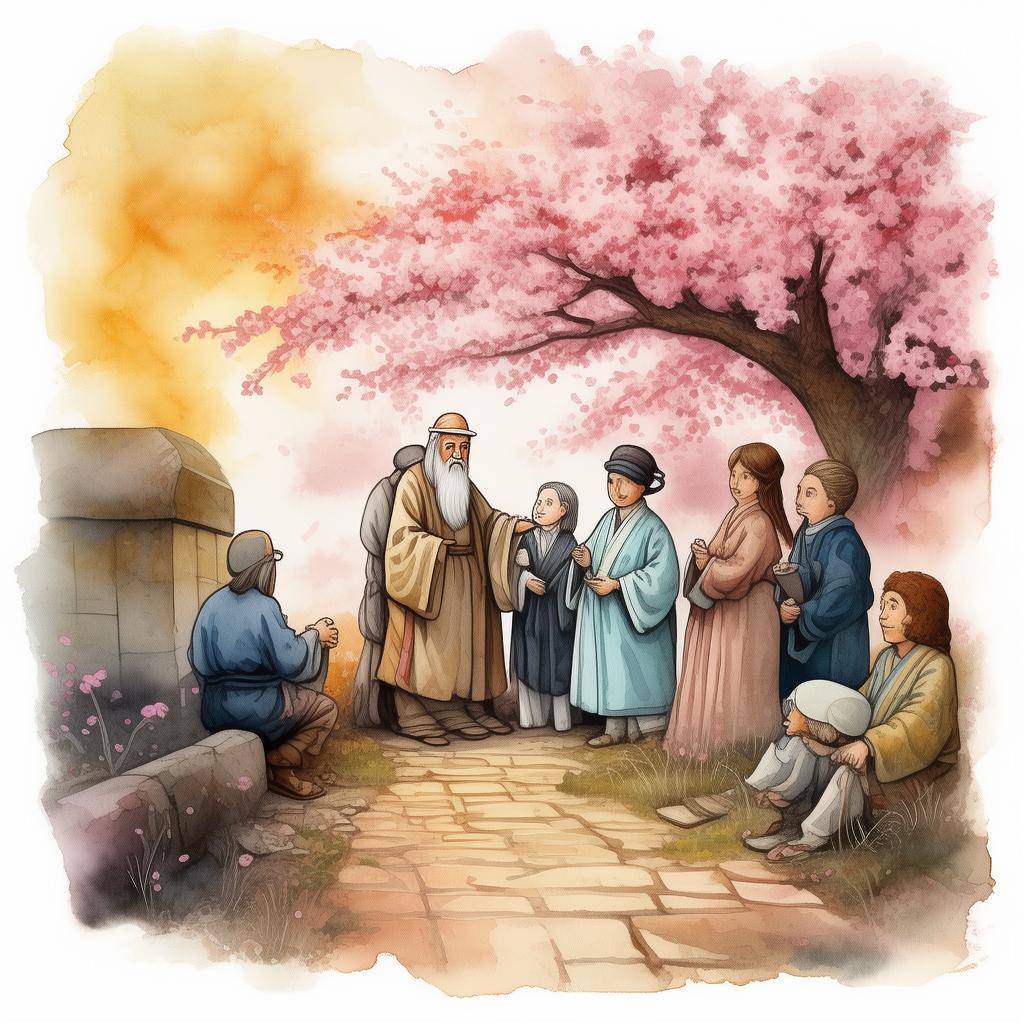
In that moment, Zhen felt a spark reignite within his chest, a flame that had been almost extinguished. He knew that Li's words were a call to arms, a reminder that the music he once created was not just for the sake of creating but for the soul's sake.
Determined to reclaim his purpose, Zhen set out to walk the streets of the city, to listen to the silent symphony that lived in the hearts of its people. He sat in cafes, parks, and on street corners, observing the world, the people, and the dreams that flickered in their eyes but never found expression.
One evening, as he sat in a small, dimly lit café, he noticed a young woman weeping silently over a photograph. The man next to her, a kind-looking middle-aged man, tried to comfort her, but she turned away, her sobs mingling with the clinking of glasses and the murmur of the café.
Intrigued by the woman's grief, Zhen approached her, his hand trembling as he placed a small, delicate score on the table in front of her. "I understand your pain," he whispered, his voice barely above a whisper. "Allow me to share a symphony that speaks of unspoken dreams."
The woman looked up, her eyes wide with confusion, but she nodded and took the score. She began to read the notes, and as she did, her tears began to dry, replaced by a look of awe and understanding. She looked up at Zhen, her eyes reflecting the beauty he had captured in those notes.
The man, curious, leaned in to see what the commotion was about. As he did, he, too, was captivated by the music, the silent symphony that seemed to weave its way into his very being. The café, once filled with the hum of conversation, fell into a hushed silence as the music enveloped them all.
The days passed, and Zhen's symphony began to take shape. He would sit in various places, each location adding a new layer to the composition, each person contributing a note to the symphony that was slowly being written. It was a symphony that spoke of hope, of love, of loss, and of the resilience of the human spirit.
As the final piece was completed, Zhen performed it in a grand hall, the music resonating through the venue like a call to arms. The audience, moved by the power of the symphony, responded with an ovation that echoed through the night.
In that moment, Zhen knew that his purpose had been found again. He had not only given voice to the silent dreams of the people but had also found his own voice once more. The symphony had become his life, his connection to the world, and the bridge between the seen and the unseen.
The city, once indifferent, now thrummed with a new rhythm, a silent symphony that had finally been heard. Zhen had not just rekindled a fire within himself but had also ignited a spark within the hearts of others, reminding them all that the dreams they held within were worth sharing, worth living.
And so, the story of Zhen and his silent symphony continued to unfold, a testament to the power of dreams and the enduring human spirit.
✨ Original Statement ✨
All articles published on this website (including but not limited to text, images, videos, and other content) are original or authorized for reposting and are protected by relevant laws. Without the explicit written permission of this website, no individual or organization may copy, modify, repost, or use the content for commercial purposes.
If you need to quote or cooperate, please contact this site for authorization. We reserve the right to pursue legal responsibility for any unauthorized use.
Hereby declared.
